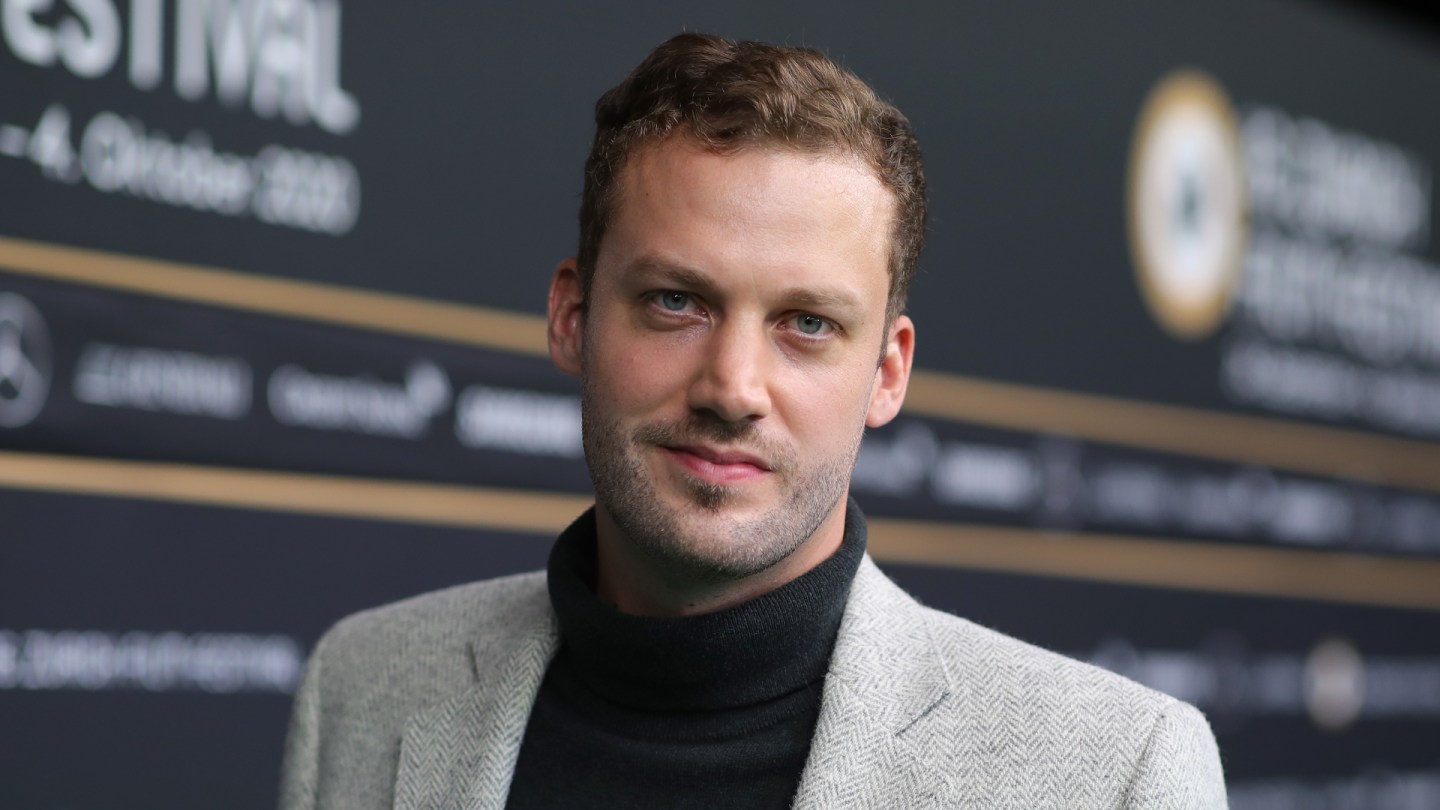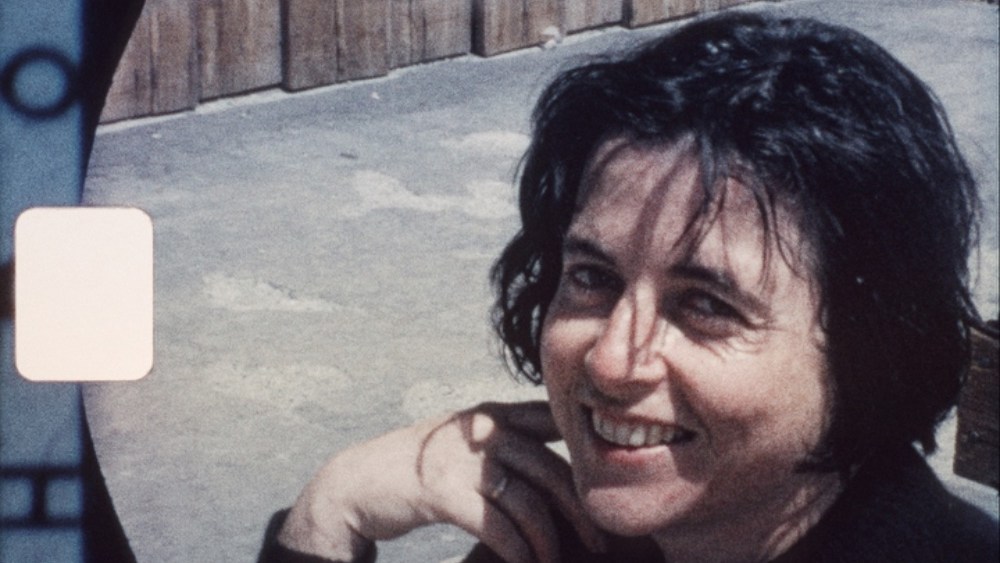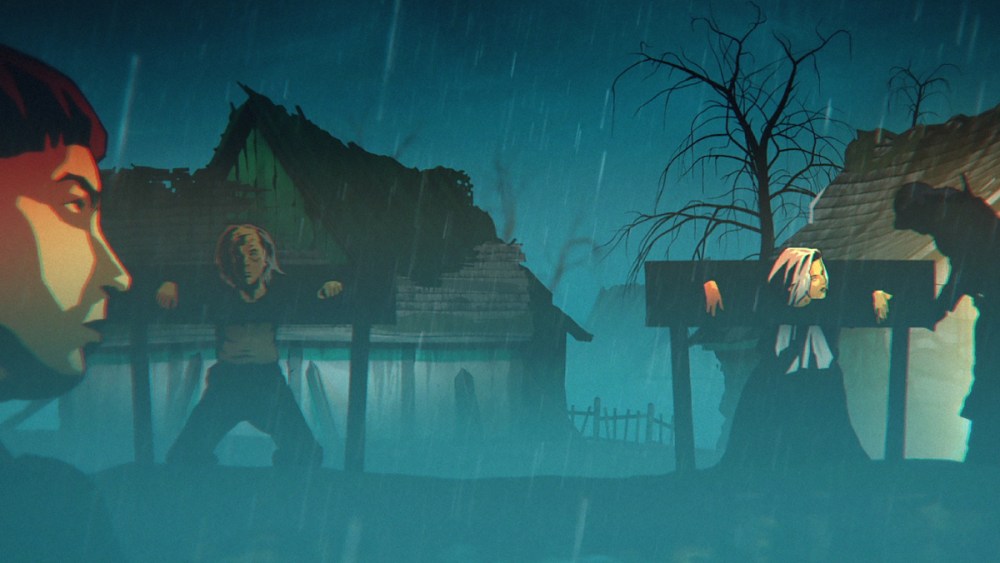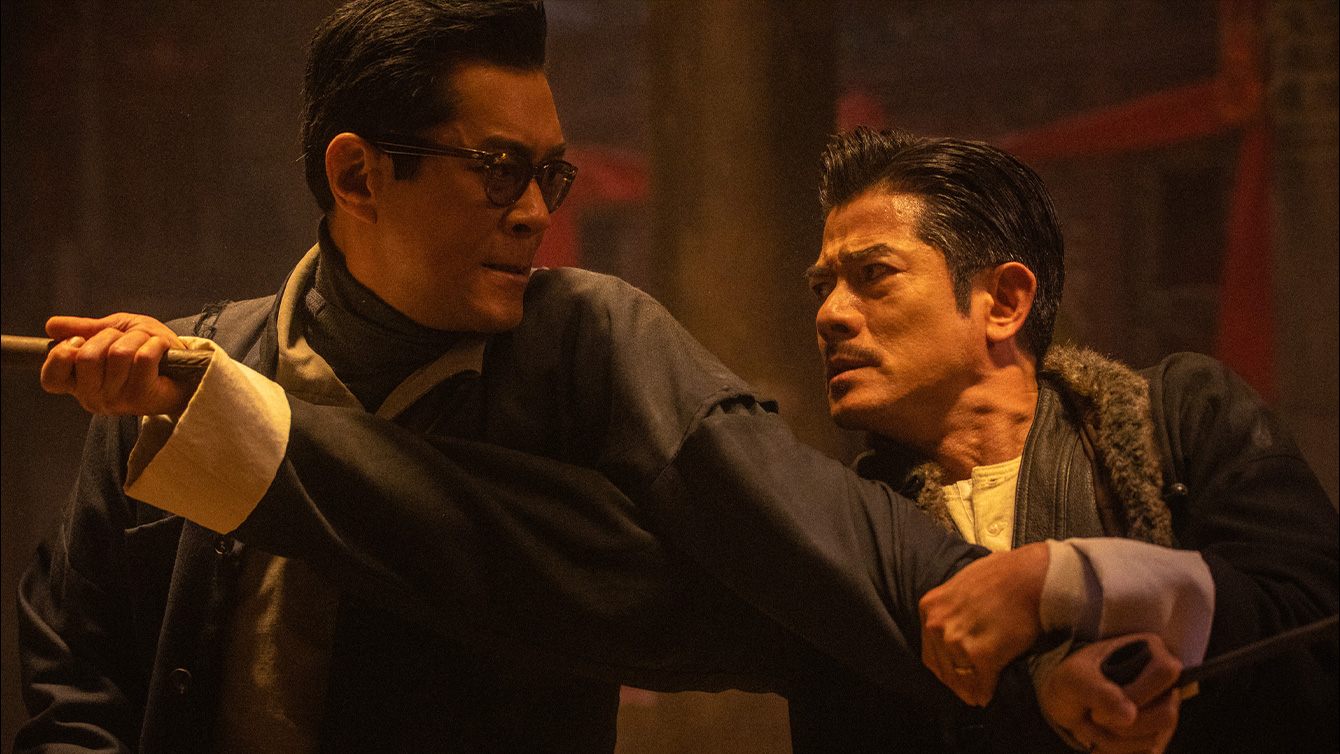Ben Sharrock on Callum Turner, Adria Arjona Film ‘Alone Together’
Ben Sharrock is calling from the desert.
The view behind him on Zoom is nothing short of stunning: an expansive valley, flanked by sandy-colored mountains stacked against vivid blue skies. A tall tree, its leaves the only splash of green in view, casts the Scottish writer-director in some much-needed shade. “Where I am at the moment is very close to the Dead Sea,” he tells The Hollywood Reporter. “We’ve spent a few days here, and now we’re heading to the south of Jordan.”
The filmmaker is in Amman, the capital of Jordan, locating scouting for his AFM-bound Alone Together. The plan is to start shooting in March and April next year, but buzz is already swirling around Sharrock’s existential romantic dramedy after the critical acclaim of his 2020 sophomore feature Limbo.
The Amir El-Masry-starring Limbo, about four asylum seekers staying on a remote island in Scotland and taking cultural awareness classes while awaiting their refugee claims, was set to screen in Cannes before the pandemic brought the world to a halt. Still, Sharrock’s voice resonated: he won San Sebastian’s Youth Jury Prize, as well as the Grand Prix at the Brussels International Film Festival, and BAFTA nominations in the outstanding debut and outstanding British film categories, among other honors. At 2021’s BAFTA Scotland Awards, he took home best director, best writer and best feature film for Limbo.
Sharrock and El-Masry re-team for Alone Together, with in-demand talents Callum Turner and Adria Arjona set to lead as two lost souls whose lives collide through a rare rainstorm in a fictional metropolis. “It’s kind of a slice of life, moment in time film,” says Sharrock, “but it speaks to quite big themes as well around love, the loss of love and the grief that comes from (that).”
Turner plays Sam, a British filmmaker facing a life crisis as he visits the Arabian desert for a job. His career is stalling, he’s on the brink of a divorce, and he’s feeling guilty about being an absent father to his young son. During a freak rainstorm, he has a fleeting and powerful connection with the captivating Inma (Arjona), and these two strangers in a strange land are consumed by mutual attraction. “But this isn’t a love story,” reads a plot synopsis. “These are adults with baggage, unable to walk away from their pasts.”
The script practically spilled out of Sharrock, who says his Lost in Translation-esque movie is offering up some overdue representation for the mid-to-late 30s crowd. “Often we see films that are maybe (about) younger people in their early 20s, and they’re trying to figure out what path they’re going to take and get a job after university, you know? But more and more, the world has changed,” he continues. “So this, in a way, explores that belated — I wouldn’t want to say coming-of-age — but I would say a belated re-evaluation of oneself not too far down the line.”
Below, Sharrock unpacks Alone Together, headed to AFM with HanWay Films launching international sales. He discusses the highs and rather sweaty lows of location scouting in the Middle East, why awards success off the back of Limbo has pushed him to stick with his distinct style of filmmaking, and the magic he believes Turner, Arjona and El-Masry have seen in his script: “It explores what it means to be human, but it does that in a way that is quite different and quite specific. I think that’s what drew them to this project.”
Ben, you’re calling from Amman in Jordan — can you tell me about the location scouting that you’ve been doing?
It’s going really well. It’s intense. It’s long days, location scouting from early morning into the night. We’re making this film in Oman as well, so we did a location scout in Oman a few months back, and it was so hot. This time, at least the weather is much cooler. In Oman, it was like 38 degrees at night, so (we were) just dripping in sweat the whole time. (Laughs.) Here, we’ve just spent a few days in the city and now we’re heading to the south of Jordan. Where I am at the moment is very close to the Dead Sea. I don’t know if you can see behind me, but it’s within a very tight valley, in between mountains. It’s absolutely stunning. Amazing locations. And we’re working with a team out here who are brilliant.
To add some context, Alone Together is set in the desert, right?
The film is set between a desert environment — actually the north of Oman, which is this very unique area that has desert fjords and very rocky, precipitous mountains — and a fictional Middle Eastern metropolis. (It’s) this fictional, busy, diverse Middle Eastern city, similar to somewhere like Dubai, but a fictionalized version.
Is it a lot cheaper to film out in the Middle East compared to the U.S., for example?
I mean, yes, it’s certainly cheaper than filming in the States and Jordan has very good tax incentives, rebates (and) tax incentives on VAT as well. So Jordan is really well set up for that. There are less incentives for Oman. It’s just that the location we’re using in Oman is so specific and so unique that it’s very difficult to find elsewhere. But this project is very much led by the creative side. So it’s really a case of finding where’s best for the film, creatively and visually and cinematically. The visual elements of the film are very important, and the locations are very important. We’re led more by that than anything else.
You haven’t started shooting yet, but you’ve got some great locations lined up and a brilliant cast attached. It’s set in a fictional city — is it a fantasy?
With the fictional environment, I would say it’s non-specific, and that’s something that I really like to do. It’s what I’ve done on both of my previous two films. For example, Limbo was set on a remote Scottish island. We shot that film on Uist (an island in the Outer Hebrides of Scotland), but it was creating a world that feels like it has one foot in reality and one foot in a surreal, liminal space. And that was the case with my first film as well, Pikadero, where it’s taking elements of another world and then building this hybrid. It feels very real and authentic, but it’s not so specific — (which) allows for me to explore different elements creatively, to bend the rules a little bit and tonally, to open it up to surrealism and absurdity and a particular type of comedic tone as well. It also allows it to sit within the human level and takes away the political elements that come with being very specific with locations or environments.
What can you tell us about the plot?
I won’t go into too much detail, but the film is about two people that are at a moment in their lives where they are lost. They’re trying to figure out a way forward, and maybe part of them is waiting to be found, in a way. And their lives collide during this rare rainstorm in this city environment, the fictional metropolis. Then the story unfolds as we begin to understand and see this encounter that they have together, this very profound connection that that they form, and how, through meeting each other, they’re able to re-evaluate their lives. (They) relearn and find a way forward and find themselves again. In that sense, it’s kind of a slice of life, moment in time film, but it speaks to quite big themes as well around love, the loss of love and the grief that comes from the loss of love. It speaks to elements around parenthood, fatherhood.
It’s quite existential. It centers around this connection that these two people have. It has these romance elements and it deals with quite serious themes, but tonally, it has a humor and a lightness to it, and it also goes into the realm of magical realism a little bit, and into the subconscious mind. It has elements of (magical-realist novelist Haruki) Murakami about it. And there’s also a Lost in Translation vibe as well, fish-out-of-water, stranger meets stranger in a strange land.
It sounds totally different to Limbo — is that indicative of your taste as a director? Is there a recipe you like to follow, or do you like the variation between projects?
Writing this film took me by surprise, to be honest. It was something that just came out of me and I felt compelled to write. I wasn’t thinking about a concept or anything like that for a long period of time. It was really exploring things from a thematic point of view, which is what I tend to do. With Limbo, I was really interested in the refugee crisis and exploring that very political subject through a very human lens, and distilling it down into the human level. And with this, I was really interested in exploring parenthood, fatherhood, love and the loss of love, separation. Thematically, (Alone Together)’s got a bit more of a universal quality to it. But then it’s exploring those themes in quite an oblique way as well, which is, I suppose, what Limbo did: taking that big political subject matter and then distilling it down and looking at it from a very specific angle.
It’s interesting that you say it sort of just came out of you. I was going to ask what inspired this script, but maybe it’s hard to pinpoint.
I think it’s a mix of things. What’s quite specific about this is that it’s a story about people at a point where they are lost in their lives and they’re forced to re-evaluate their value systems… It’s quite specific to being in your mid-to-late 30s. I’m a fairly recent father, I have a four year old son and I also went through a separation, and I think that from my point of view, it’s exploring everything around that. (It explores) the idea of family as well, what family means and how that affects your identity… What’s important in this exploration of my generation as well is you grow up with this idea of a family that’s very fixed. When you don’t fit into that and you’re surrounded by that depiction of family, I think that can be challenging. This film deals with a kind of optimism and an understanding around families that do have different structures and take different shapes.
Often we see films that are maybe (about) younger people in their early 20s, and they’re trying to figure out what path they’re going to take and get a job after university, you know? But more and more, the world has changed… So this, in a way, explores that belated — I wouldn’t want to say coming-of-age — but I would say a belated re-evaluation of oneself not too far down the line. Because that’s the other thing: we often get films where we have stories of people entering into retirement, and they look back on their lives and decide to live life in a different way or something like that. This is bang in the middle.
Tell me about getting Callum and Adria on board — two highly in-demand actors right now, so it must have been pretty cool having them sign on.
Yeah, amazing. They’re two incredible actors who are at such an exciting point in their careers as well. And I think they’re both doing amazing things and they’re actors that are very magnetic. They both have a huge amount of presence on screen, and I think they will have incredible chemistry together. They are actors that we really want to know what they’re going to do next and see how their careers develop. I’m very excited to work with both of them.
This might be a horrible question, but what do you think it is they saw in you and this script?
(Laughs.) I suppose they both really loved and connected with my previous work. And I think that seeing Limbo and how specific that vision is… It’s a difficult question, because I don’t want to speak for them. But I suppose that they’re interested in exploring risk-taking films that have a specific voice and a specific vision and stylistic quality to it. I’d like to say it’s a unique film — both of them have said that. It explores lots of universal themes and explores those things with depth, and it explores what it means to be human, but it does that in a way that is quite different and quite specific. I think that’s what drew them to this project as well.
You saw a lot of awards success with Limbo. It’s not the reason you make a film, but what kind of confidence does that instil in you as a young director, to get that recognition?
Coming off the back of that, of course, it fills you with confidence. Especially when you’re trying to do something that is different, and you’re trying to carve out your own voice and style as a filmmaker that is very specific… Having that recognition, it’s useful, because it tells you to stick to your guns and to keep going. So, yeah, I suppose having the success of the last film supports that career path, because otherwise, you could go on to direct other people’s work, or start directing TV — sometimes that feels like it would be a nice option, but I think having the success of Limbo has given me the confidence to keep going with what I’m doing and do my own thing.
Are you optimistic about the future of film?
It’s important to be optimistic. It’s not really useful to be pessimistic. I think that there are definitely lots of challenges at the moment, but I really do believe that there is a demand for strong, interesting, risk-taking, bold, author-led films that can have an impact. We see them less and less. But one of the things with this film is that — and I like to say this about Limbo as well — what I’m really interested in doing is making films that have the ability to make you feel something. That’s really the power of cinema, to make an audience feel something. That’s what we often go to the cinema for, because we want to feel. I think films have the power to do that. And there’s demand for films that have the ability to do that.
Would you happily keep casting Amir in your films?
(Laughs.) All of them! I would love to. When you find people that you work really well with, you have such strong creative collaborations and friendships off-screen. Because ultimately, you build relationships off of trust. And having relationships of trust is so important when you’re in a creative collaboration. It makes sense to hold on to that.
Is your head completely full with this movie, or are you already thinking about what you want to do next?
At the moment, my head is full with this film. And I want it to be. But I have other projects as well that I’m piecing together bit by bit, and other things (are) moving forward. So I have lots going on, but really, until I make this film… the idea is to be shooting in March and April next year, and I’m just fully committed to this at the moment and doing everything that I can to make the best film possible.
Share this content:




Publicar comentário